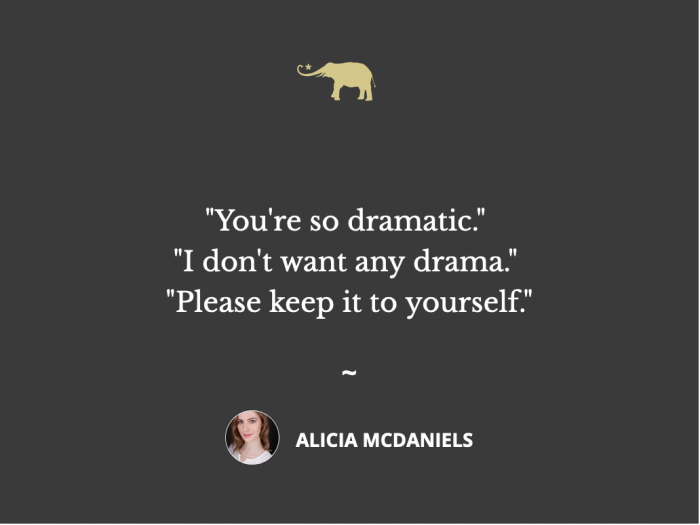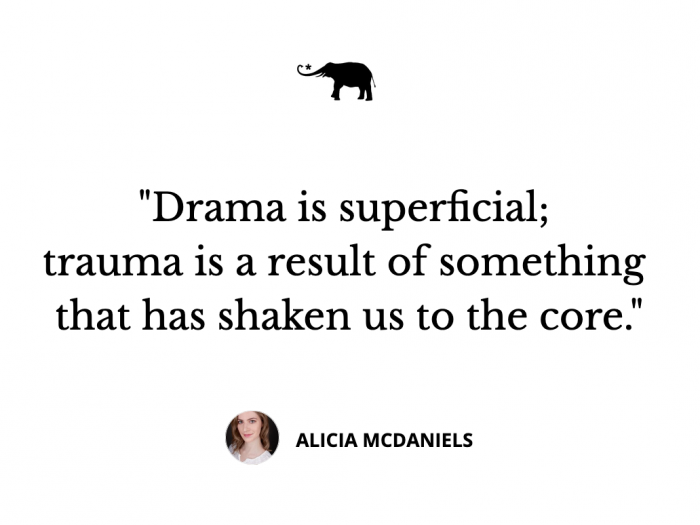“You’re so dramatic.” “I don’t want any drama.” “Please keep it to yourself.”
I heard these volatile phrases after being ghosted and betrayed by someone.
I heard these words after dealing with the death of my mother.
I even heard these words after dealing with the death of a long-term boyfriend who I was living with and caring for.
So badly, each time, I wanted to say, “F*ck off.”
Sure. I have been dramatic at times in my life. We all have.
It shouldn’t be a question in differentiating between “causing drama” and having real-life reactions to trauma that can last a lifetime. But here we are.
Most of us who deal with traumatic life experiences can’t just “take a pause.” We have to sustain our livelihoods, move forward as best as we can, and try our damndest to survive, all while going through the emotions of grief. We may have an attitude one day—or every day.
We can’t comprehend someone complaining about their lunch or finding flaws in others as a constant subject of conversation.
People may see our silence as having an issue with them personally. But in reality, we are less-than-present. We are trying to rationalize our thoughts, which reach well beyond the surface of a “what’s wrong?” statement.
Confusing trauma with drama is a shallow way to write off who is really hurting.
Comprehending drama is not at the top of our list when we are healing from trauma.
Passive-aggressive behavior, gossip, ganging up on people, and malicious intent in a situation = drama.
Dealing with trauma is trying ever-so-hard to get on with the day when it all seems useless because someone or something was taken from us beyond our control.
For anyone going through the grief process:
Sometimes we have to stop listening. It is not our job to make everyone understand. We all have different backgrounds and situations that develop us into who we are—we are individuals with separate histories.
As we start to heal and grow, we become more aware, and sometimes it takes trauma to back off on drama.
When we heal, we won’t be the same. And we shouldn’t want to. Being angry at those who confuse our trauma with drama isn’t helpful to our growth, but understanding that not everyone “gets it” (nor should they) is a better way to step away gracefully.
Healing is an individual path. Although having a community around us is helpful, our mind is whom we wander with at the end of the day.
Strength can be someone backing out when they know they are not in the right headspace. But strength is also reaching to be better when everything around us is collapsing.
This is for no one to judge. When we live in others’ judgment, we begin to deny our growth.
Sometimes being strong is a burden because others overlook our pain, but it is our pain. We have to live with it.
And, one day, we will finally make sense of it—on our own journey.










Read 13 comments and reply